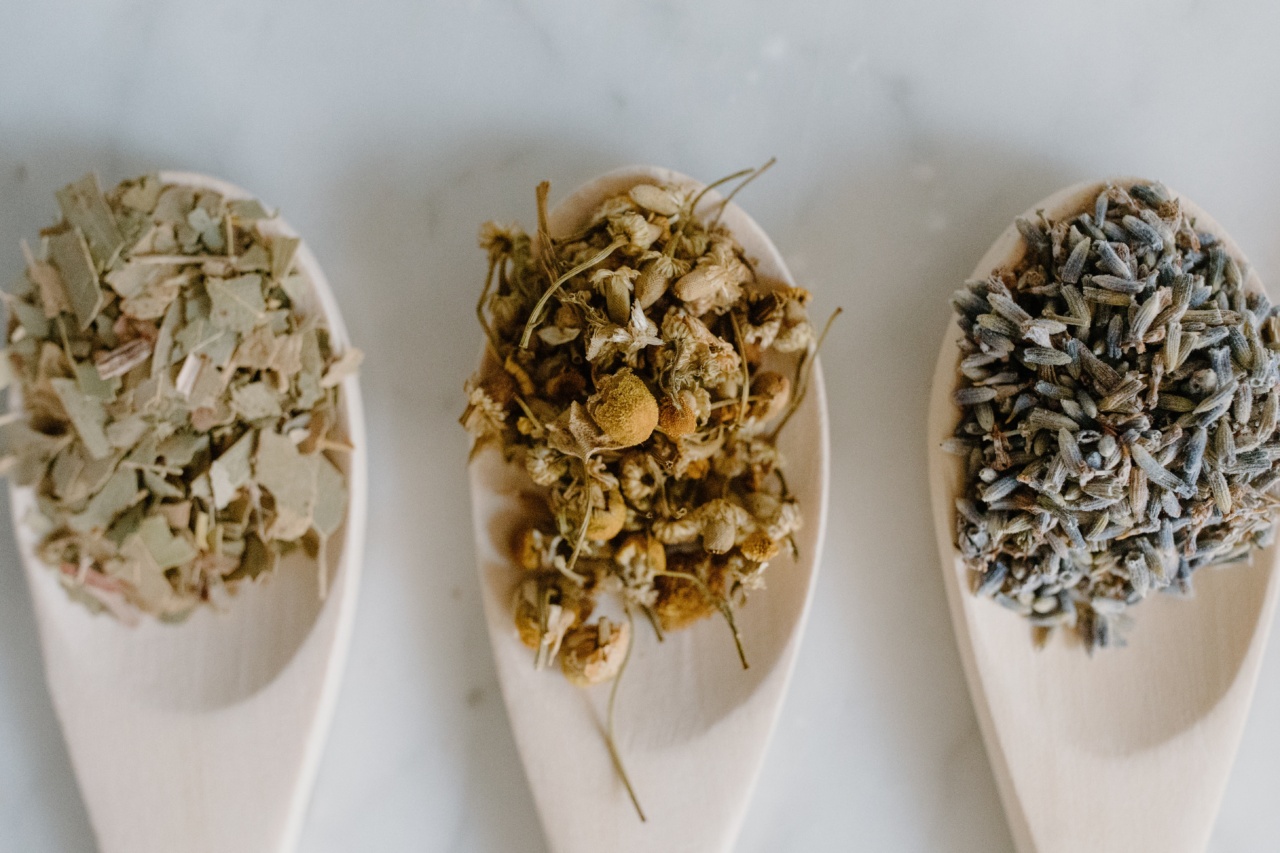Arthritis is a common health condition characterized by inflammation and stiffness in one or more joints. It can cause significant pain and discomfort, making it difficult for individuals to carry out their daily activities.
While there is no cure for arthritis, there are various herbal remedies that can help alleviate the symptoms and improve the quality of life for those affected.
Turmeric
Turmeric is a yellow spice commonly used in Indian cooking, and it contains a compound called curcumin, which has powerful anti-inflammatory properties.
Research has shown that curcumin can help reduce joint pain and stiffness in individuals with arthritis. It is available in supplement form or can be added to meals for its medicinal benefits.
However, individuals taking blood-thinning medications should consult their healthcare provider before using turmeric as a remedy for arthritis, as it can increase the risk of bleeding.
Ginger
Ginger is another herb with potent anti-inflammatory effects. It contains gingerol, a bioactive compound known for its pain-relieving properties.
Studies have shown that ginger can help reduce joint pain and swelling, making it a beneficial herbal remedy for arthritis. Ginger can be consumed as a tea, added to dishes, or taken in supplement form.
Devil’s Claw
Devil’s Claw, also known as Harpagophytum procumbens, is an herb native to southern Africa. It has been traditionally used to treat arthritis and other inflammatory conditions.
Devil’s Claw contains iridoid glycosides, which have anti-inflammatory properties. Research suggests that Devil’s Claw can help reduce pain and improve mobility in individuals with arthritis. It is available in different forms, including capsules, tablets, and topical creams.
Boswellia
Boswellia, also known as Indian frankincense, is derived from the resin of the Boswellia serrata tree. It contains boswellic acids, which have anti-inflammatory properties.
Studies have shown that boswellia can help reduce pain and improve joint function in individuals with osteoarthritis and rheumatoid arthritis. Boswellia is available in capsule form, and it is important to choose a standardized extract to ensure its potency.
Willow Bark
Willow bark is a natural remedy that has been used for centuries to relieve pain and reduce inflammation. It contains a compound called salicin, which is similar to the active ingredient in aspirin.
Willow bark can help alleviate joint pain and stiffness associated with arthritis. It is available in various forms, including capsules, tablets, and tinctures.
Stinging Nettle
Stinging nettle is a plant that has been used in traditional medicine to treat arthritis. It has anti-inflammatory properties and can help reduce pain and swelling in the joints. Stinging nettle can be consumed as a tea or taken in supplement form.
It is important to handle stinging nettle with caution, as the plant can cause skin irritation if touched directly.
Green Tea
Green tea is known for its numerous health benefits, including its anti-inflammatory effects. It contains polyphenols, which have been shown to reduce joint damage and inflammation in individuals with arthritis.
Drinking green tea regularly can help manage arthritis symptoms and improve overall joint health.
Evening Primrose Oil
Evening primrose oil is derived from the seeds of the evening primrose plant. It is rich in gamma-linolenic acid (GLA), an omega-6 fatty acid with anti-inflammatory properties.
Research suggests that evening primrose oil can help reduce joint pain and stiffness in individuals with rheumatoid arthritis. It is available in capsules or oil form and is commonly taken as a dietary supplement.
Aloe Vera
Aloe vera is widely known for its soothing properties and is commonly used to treat skin conditions. However, it can also be beneficial for individuals with arthritis.
Aloe vera contains anti-inflammatory compounds that can help reduce joint pain and swelling. Applying aloe vera gel topically to the affected joints or consuming aloe vera juice regularly can provide relief from arthritis symptoms.
Cayenne Pepper
Cayenne pepper contains a substance called capsaicin, which has pain-relieving properties. It works by interfering with the transmission of pain signals to the brain.
Applying a topical cream or ointment containing capsaicin to the affected joints can help alleviate arthritis pain. It is important to wash hands thoroughly after application to avoid contact with the eyes or other sensitive areas.
Conclusion
While there is no cure for arthritis, incorporating herbal remedies into your daily routine can help manage the symptoms and improve your quality of life.
Turmeric, ginger, Devil’s Claw, boswellia, willow bark, stinging nettle, green tea, evening primrose oil, aloe vera, and cayenne pepper are just a few examples of herbal remedies that have shown promising results in reducing joint pain and inflammation. However, it is important to consult with your healthcare provider before starting any herbal treatment, especially if you are taking other medications, to ensure safety and effectiveness.
Remember to listen to your body and make adjustments to your treatment plan as needed.






























